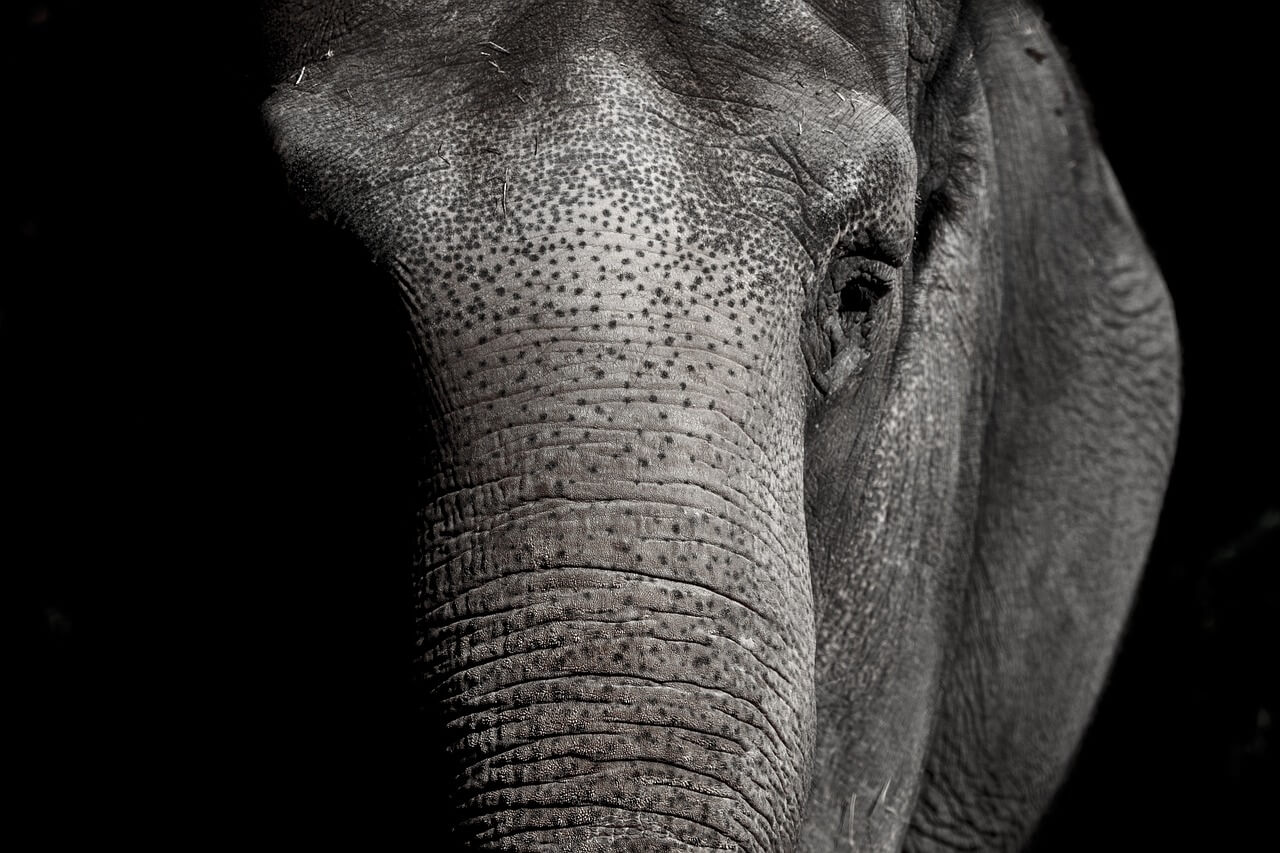Death of Chained Elephant by Fire in Tamil Nadu Temple Prompts PETA India and 10 More Animal Protection Groups to Seek Replacement of Live Elephants With Mechanical Means, Idols, or Statues
PETA India and 10 more Indian animal protection groups, including from Tamil Nadu, elsewhere in South India, and other parts of the country, have issued a detailed joint call on Tamil Nadu forest and Hindu religious and charitable endowments ministers for an end to the practice of keeping elephants in the state’s temples, seeking their replacement with mechanical or other non-animal means after an ailing 54-year-old elephant, Subbulakshmi, died from severe burn injuries after the roof under which she was kept caught fire in Sri Shanmughanathar Temple in Kundrakudi in the Sivaganga district of Tamil Nadu.
The organisations have collectively demanded that a preliminary offence report be immediately registered for breach of sections of the Wild Life (Protection) Act, 1972; The Prevention of Cruelty to Animals Act, 1960; and the Bharatiya Nyaya Sanhita, 2023. They have also pointed out Subbalakshmi’s tragic case is not an isolated incident and that captive elephants typically suffer or die prematurely from their circumstances or harm humans around them out of frustration.
Subbulakshmi was unable to escape the flames when the roof of her small enclosure caught fire because she was chained to a pole. The organisations say that while the fire may very well have been an accident, her death was wholly avoidable, as real elephants are not required in temples.
Signatories to the joint letter include People for Cattle in India, Chennai; the Wildlife Rescue and Rehabilitation Centre, Karnataka; the Heritage Animal Task Force, Kerala; People for Animals, Goa; the Centre for Research on Animal Rights; Walking Eye Foundation for Animal Advocacy, Kerala; PETA India; and the Federation of Indian Animal Protection Organisations.
The joint letter reads,
“Like all elephants who end up captive in temples, Subbulakshmi had spent many years – in her case, more than five decades, almost all her life – chained in place most of the time. And finally, the same chain that marked her relationship with humans as a captive elephant became the cause of her death, preventing her from escaping the fire that ultimately killed her.”
The animal protection groups pointed out that serious concerns regarding Subbulakshmi’s physical and mental health and poor daily upkeep, including a request for her urgent retirement on compassionate grounds, had been raised years ago to the then chief wildlife warden of Tamil Nadu. It was stated then that Subbulakshmi was a geriatric elephant who was suffering from various physical ailments, including alarming obesity, foot rot, and cracked footpads, and showing abnormal behaviour, like bobbing her head, a sign of mental distress. It was also reported that she was being controlled with an ankus by mahouts. Despite her failing health, she was kept all day on a concrete floor and used to beg for money in exchange for blessings.
The joint letter goes on to state,
“This is the greatest tragedy in this case: that the suffering of Subbalakshmi had not gone unnoticed. It was blatantly visible to everyone. It was documented and raised. It was inspected and studied. But the insistence on keeping her at a temple, which is a place of worship with priests and devotees and not a wildlife sanctuary with veterinarians and wildlife experts, eventually led to her cruel death.” And that “[A]n elephant in physical and emotional pain can never bless, only curse.”
The animal protection organisations cited examples of other tragedies befalling elephants in temples, including those of Jeymalyatha (Joymala), who is in the custody of Arulmigu Nachiyar (Andal) Temple, Srivilliputhur, and suffered at least two instances of severe beatings by her handlers, revealed to the public via video footage released by the media; of Lakshmi, of the Manakula Vinayagar temple in Puducherry, who suddenly collapsed while on a walk and died after having been chained for long hours in appalling conditions, fed the wrong diet, and left to suffer from debilitating foot rot; and of Deivanai, an elephant at the Subramaniya Swamy Temple in Thiruparankundram, who was kept chained for 22 hours a day, with both legs tied, and showed visible signs of psychological distress, which resulted in her trampling her mahout to death.
In 2021, the Madras High Court called for a policy to prohibit future ownership of elephants by private individuals and temples over welfare concerns. Mechanical elephants are already used by numerous temples, including Sree Krishna Temple and Peringottukara Devasthanam in Thrissur, Thrikkayil Mahadeva Temple in Kochi, Jagadguru Sri Veerasimhasana Mahasamsthana Math in Mysuru, Pournamikavu Temple in Thiruvananthapuram, Shivan Temple in Gudalur, and Sri Siddalingeshwara Swamy Temple in Yedeyur. In comparison to the keeping of a real elephant, mechanical elephants are eco-friendly and low maintenance, low cost and safe: they do not get lonely, angry, or hungry; have no need for water; and provide employment opportunities for artisans. The groups are calling for Tamil Nadu’s existing elephants to be retired to sanctuaries that will not use weapons and will keep them chain-free, in the company of other elephants.









